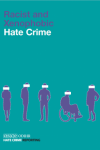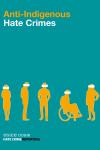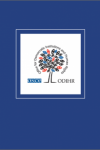Расистские и ксенофобские преступления на почве ненависти
Расизм - это предубеждение или враждебность по отношению к расе, цвету кожи, языку, национальности, национальному или этническому происхождению человека. И хотя некоторые общины особенно уязвимы, объектом расизма может стать любая этническая группа. Нетолерантный дискурс в средствах массовой информации или со стороны политиков может привести к усилению расистских настроений по отношению к мигрантам и другим меньшинствам, включая навешивание на них ответственности в периоды экономического кризиса. Ежегодный отчет БДИПЧ о преступлениях на почве ненависти в регионе ОБСЕ продемонстрировал, что расистские нападения могут принимать самые разные формы, будучи направленными против людей из различных групп по всему региону. Общими чертами для этого типа преступлений являются нападения групп правонарушителей на мигрантов и представителей этнических меньшинств, а также нанесение ущерба бизнесу и собственности, принадлежащим или связанным с устоявшимися этническими сообществами.
States that report
Incidents were reported on these states
International Reports
Бельгия
The UN Human Rights Committee encouraged Belgium to intensify its efforts to prosecute and punish racist crimes as well as anti-Semitic crimes and “Islamophobic” crimes.
Босния и Герцеговина
The UN Committee on the Elimination of Racial Discrimination (CERD) encouraged endeavours to combat ethnic prejudice, and the application of criminal provisions to hate crimes in Bosnia and Herzegovina.
The UN Human Rights Council, in its Universal Periodic Review, encouraged Bosnia and Herzegovina to apply criminal provisions on hate crimes.
The European Commission against Racism and Intolerance (ECRI) noted that attackers continued to damage religious sites in Bosnia and Herzegovina. It also recommended that all “incidents of alleged racist violence be thoroughly and promptly investigated” and that the authorities “introduce systematic and comprehensive monitoring of all incidents which may constitute racist violence.”
Венгрия
The UN Human Rights Committee recommended that Hungary should ensure proper training for judges, prosecutors and police to recognize hate crimes.
Грузия
The European Commission against Racism and Intolerance (ECRI) recommended the implementation of publicawareness campaigns about the existence of hate crime laws, as well as encouragement of victim reporting. It also urged authorities to “reinforce their efforts to combat violent manifestations of religious intolerance involving physical assault and/or attacks on property”.
Испания
The European Commission against Racism and Intolerance (ECRI) commented on the need to better address racist crime in Spain.
The UN Human Rights Council, in its Universal Periodic Review, encouraged Spain to record and publish statistics on hate crimes.
Казахстан
The UN Committee on the Elimination of Racial Discrimination (CERD) noted its concern on the limited information and low numbers from Kazakhstan on prosecutions and convictions for ethnically/racially motivated offences.
Нидерланды
The UN Committee on the Elimination of Racial Discrimination (CERD) noted its concern about the limited information and low numbers from Netherlands on prosecutions and convictions for ethnically/racially motivated offences.
Польша
The UN Human Rights Committee expressed concern about Poland’s reportedly low rate of investigation and prosecution of crimes potentially motivated by racial hatred. It also noted with concern “persistent manifestations of anti-Semitism, including physical attacks and desecration of Jewish cemeteries”.
Северная Македония
The European Commission against Racism and Intolerance (ECRI) discussed the inadequacy of data-collection methods and suggested that authorities had not been attentive to the problem of racist violence.
Словакия
The UN Committee on the Elimination of Racial Discrimination (CERD) noted with concern the number of racially motivated attacks in Slovakia, encouraging investigation, prosecution and increased punishment for racially motivated violence. CERD also expressed its concern over the reported increase in anti-Semitic violence and urged authorities to intensify their efforts to combat and prevent such crimes.
Словения
The UN Human Rights Council, in its Universal Periodic Review, encouraged Slovenia to apply criminal provisions on hate crimes.
Турция
The European Commission against Racism and Intolerance (ECRI) made several recommendations to the government of Turkey, including encouraging the enactment of legislation that ensures racist motivation is considered an aggravating circumstance of criminal acts, the thorough investigation of alleged racist incidents, and the introduction of a “systematic and comprehensive monitoring of all incidents that might constitute racist violence.”
Франция
The European Commission against Racism and Intolerance (ECRI) encouraged France to continue its training for police, prosecutors and judges on criminal-law provisions to combat racism, to improve systematic responses to complainants in racist acts, and to improve recording of racist incidents.
Хорватия
The UN Human Rights Council, in its Universal Periodic Review, encouraged Croatia to continue the establishment of a systematic process for monitoring and responding to hate crimes.
Швеция
The UN Human Rights Council, in its Universal Periodic Review, encouraged Sweden to continue efforts to prevent, combat and prosecute hate crimes.
Эстония
The European Commission against Racism and Intolerance (ECRI) noted that police need an increased awareness of the problem of racist crimes and recommended that “police thoroughly investigate racist crime” and that the “authorities establish and operate a system for recording and monitoring racist incidents.”
The UN Committee on the Elimination of Racial Discrimination (CERD) encouraged endeavours to include ethnic, racial or religious motivation as an aggravating circumstance in the criminal code.


